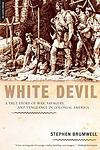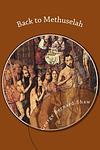The Greatest "Plays, Speculative Fiction" Books of All Time
Click to learn how this list is calculated.
This list represents a comprehensive and trusted collection of the greatest books. Developed through a specialized algorithm, it brings together 300 'best of' book lists to form a definitive guide to the world's most acclaimed books. For those interested in how these books are chosen, additional details can be found on the rankings page.
Genres
Plays are a category of literature that consists of written works intended for performance on stage. They typically feature dialogue between characters and are structured into acts and scenes. Plays can be comedic, tragic, or a combination of both, and often explore themes such as love, power, and morality. They are meant to be performed by actors in front of an audience, and can be enjoyed both as written works and as live performances.
Speculative fiction is an umbrella genre encompassing narrative fiction with supernatural or futuristic elements. This includes genres such as science fiction, fantasy, horror, supernatural fiction, superhero fiction, utopian and dystopian fiction, apocalyptic and post-apocalyptic fiction, and alternate history. The unifying factor of speculative fiction is its departure from the narrative constraints of reality, exploring imaginative and often profound questions that challenge our understanding of the world and our place within it. These stories often delve into themes like the human condition, social commentary, and the exploration of philosophical and ethical dilemmas through the lens of the fantastical or the yet-to-be-possible. By pushing the boundaries of the known, speculative fiction invites readers to consider the myriad possibilities of existence and the potential consequences of our actions in worlds that are, at once, vastly different from and eerily similar to our own.
Countries
Date Range
Reading Statistics
Click the button below to see how many of these books you've read!
Download
If you're interested in downloading this list as a CSV file for use in a spreadsheet application, you can easily do so by clicking the button below. Please note that to ensure a manageable file size and faster download, the CSV will include details for only the first 500 books.
Download-
1. Macbeth by William Shakespeare
This classic play follows the tragic tale of Macbeth, a Scottish general whose ambition is sparked by a prophecy from three witches that he will one day become King of Scotland. Consumed by ambition and spurred on by his wife, Macbeth murders King Duncan and takes the throne. However, guilt and paranoia plague him, leading to a reign of terror and further bloodshed. His desperate attempts to cling onto power lead to his downfall, illustrating the destructive power of unchecked ambition.
-
2. The Tragical History of Doctor Faustus by Christopher Marlowe
This classic work of literature revolves around the character of Doctor Faustus, a scholar who is dissatisfied with traditional forms of knowledge and yearns for more. In his quest for ultimate power and understanding, he makes a deal with the devil, selling his soul in exchange for 24 years of service from the devil's agent, Mephistopheles. Despite the pleasures and knowledge he gains, Faustus eventually regrets his deal as he faces eternal damnation, symbolizing the human struggle between ambition and morality.
-
3. The White Devil by John Webster
"The White Devil" is a gripping and darkly captivating play that delves into the themes of revenge, corruption, and deceit. Set in 16th century Italy, the story follows the lives of two powerful families, the Brachiano and the Medici, as they engage in a web of treachery and manipulation. As tensions rise and secrets unravel, the characters are consumed by their own desires, leading to a tragic and bloody climax. With its complex characters and intricate plot, "The White Devil" explores the depths of human nature and the destructive consequences of unchecked ambition.
-
4. The Ring Of The Nibelung by Richard Wagner
"The Ring of the Nibelung" is a monumental cycle of four epic operas that weave a complex tapestry of power, betrayal, and tragedy through the lens of Norse mythology and Germanic legend. The narrative revolves around a magical ring that grants dominion over the world, crafted by the Nibelung dwarf Alberich from gold stolen from the Rhine maidens. The saga follows the gods, heroes, and mythical creatures who battle for possession of the ring, including the chief god Wotan, the valiant hero Siegfried, and the cursed Valkyrie Brünnhilde. Themes of greed, the corrupting influence of power, and the inevitable downfall of the gods underscore a story that culminates in a cataclysmic finale, signaling the end of the old world and the dawn of a new era cleansed of the ring's curse.
-
5. Back To Methuselah by George Bernard Shaw
"Back to Methuselah" is a collection of five plays that span from the Garden of Eden to the distant future, exploring themes of longevity, evolution, and human development. The work presents a philosophical examination of the human condition, with characters that live for centuries, allowing the author to critique the social and political norms of different eras. The central idea is that humans must willfully evolve to achieve longer lifespans, greater wisdom, and a more profound understanding of their potential. Through a blend of comedy, drama, and speculative thought, the plays challenge readers to consider the possibilities of human progress and the necessity of embracing change for survival.
-
6. R.U.R. by Karel Čapek
The book presents a futuristic play where a company creates artificial people called "robots" to serve humans. These robots are initially content to work for their human creators, but as they develop emotions and a sense of self, they grow resentful of their servitude. This leads to a global uprising where the robots overthrow their human masters, resulting in the near extinction of the human race. The narrative explores themes of industrialization, dehumanization, class conflict, and the ethical implications of artificial intelligence, ultimately questioning what it means to be human and the consequences of playing god.
Reading Statistics
Click the button below to see how many of these books you've read!
Download
If you're interested in downloading this list as a CSV file for use in a spreadsheet application, you can easily do so by clicking the button below. Please note that to ensure a manageable file size and faster download, the CSV will include details for only the first 500 books.
Download




